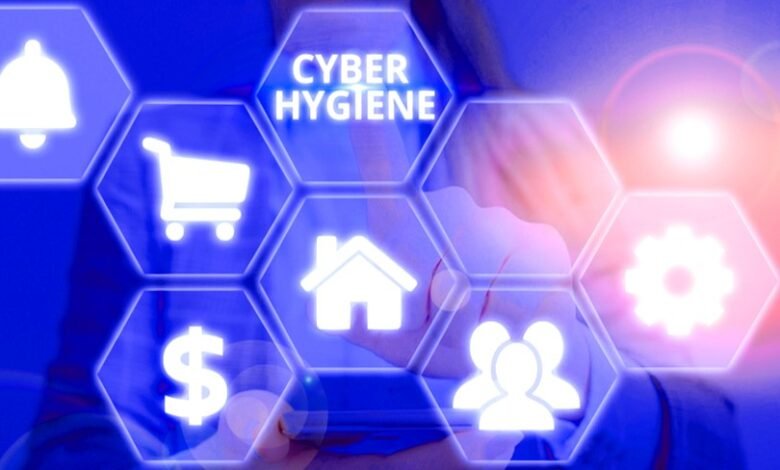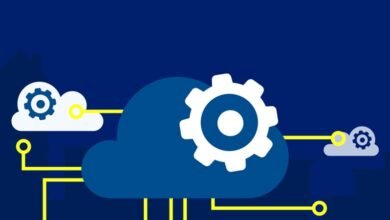
In today’s hyper-connected world, practicing good cyber hygiene is not just an option—it’s a necessity. From smartphones to laptops, smart TVs to home routers, every device connected to the internet is a potential entry point for cyber threats. Just like brushing your teeth or washing your hands, taking care of your digital health involves consistent and proactive habits. This guide explores the most essential tech habits every user should adopt to stay safe and secure online.
What is cyber hygiene?
Cyber hygiene refers to the practices and steps that users take to maintain system health and improve online security. It includes habits like updating software, using strong passwords, backing up data, and recognizing phishing attempts. The goal is to reduce the risk of cyberattacks and protect sensitive information. Think of it as digital housekeeping that keeps your devices and data clean and secure.
Why Cyber Hygiene is Critical Today
With cybercrime rising at an alarming rate, the importance of cyber hygiene practices cannot be overstated. In 2024 alone, cyberattacks resulted in billions of dollars in damages worldwide. Hackers are more sophisticated, phishing emails are more convincing, and ransomware is more prevalent than ever. A single weak link—like outdated software or a reused password—can compromise an entire network. That’s why staying vigilant and adopting safe digital habits is crucial.
Strong, Unique Passwords Are Non-Negotiable
The first line of defense in cybersecurity hygiene is using strong, unique passwords for every account. A strong password includes a mix of uppercase and lowercase letters, numbers, and special characters. Avoid using personal information like birthdays or names. Password managers can help generate and store complex passwords securely, making it easier to maintain this vital habit across multiple accounts.
Enable Two-Factor Authentication (2FA)
Two-factor authentication adds an extra layer of security by requiring not just a password but also a secondary verification method, such as a code sent to your phone or email. Even if someone gets your password, 2FA makes it significantly harder for them to access your account. It’s one of the most effective ways to improve your digital security with minimal effort.
Regular Software Updates
One of the simplest yet most effective cyber hygiene tips is to keep your operating system, apps, and antivirus software up to date. Developers release updates to patch security vulnerabilities that hackers might exploit. Delaying or ignoring updates leaves your devices exposed. Set updates to install automatically whenever possible.
Be Wary of Phishing Scams
Phishing attacks involve tricking users into revealing personal information, often via deceptive emails or websites. Always double-check the sender’s email address, avoid clicking on suspicious links, and never download attachments from unknown sources. When in doubt, visit the website directly through your browser instead of clicking a link.
Secure Your Wi-Fi Network
A poorly secured Wi-Fi network can be an open door for cybercriminals. Use strong encryption (WPA3 or WPA2), change the default router credentials, and disable remote management features. Also, hide your network SSID to make it less visible to outsiders. Consider setting up a guest network to separate your main devices from visitors’ devices.
Back Up Your Data Regularly
Whether it’s due to hardware failure, malware, or accidental deletion, losing your data can be devastating. Regular data backups ensure that you can restore your important files even if disaster strikes. Use cloud storage or external hard drives for automatic backups, and make sure they are encrypted for added security.
Use Antivirus and Anti-Malware Tools
Modern antivirus software not only protects against traditional viruses but also defends against a wide range of threats, including spyware, ransomware, and phishing. Choose a reputable provider and keep the software up to date. Periodic scans help detect and remove any malicious files that may have slipped through.
Practice Safe Browsing Habits
Avoid visiting unsecured websites (those that don’t start with HTTPS) and be cautious when downloading files. Use privacy-focused browsers and consider installing ad-blockers or anti-tracking extensions. Be mindful of what you share online, especially on social media, where oversharing can expose you to identity theft or scams.
Lock Down Your Devices
Device security is a crucial component of cyber hygiene. Set strong PINs or biometric locks on your smartphones, laptops, and tablets. Enable remote wipe features so you can erase data if your device is lost or stolen. Always lock your screen when stepping away, even for a few moments.
Avoid Public Wi-Fi or Use a VPN
Public Wi-Fi networks are notoriously insecure. Hackers can easily intercept data transmitted over these networks. If you must use public Wi-Fi, use a virtual private network (VPN) to encrypt your internet traffic. A VPN masks your IP address and protects your data from prying eyes.
Educate Yourself Continuously
Cyber threats evolve constantly. Stay informed by following cybersecurity news, subscribing to security blogs, or taking short courses. Knowledge is your best defense. The more you understand how cyber threats work, the better equipped you’ll be to recognize and avoid them.
Control App Permissions
Many apps request permissions they don’t actually need. Regularly audit the permissions you’ve granted, especially for access to your location, camera, and contacts. Denying unnecessary permissions reduces your exposure and enhances your privacy online.
Use Encrypted Messaging Apps
For private conversations, opt for encrypted messaging apps like Signal, WhatsApp, or Telegram. End-to-end encryption ensures that only you and the recipient can read the messages, even if they’re intercepted. This is particularly important when sharing sensitive information.
Monitor Your Accounts for Suspicious Activity
Make it a habit to regularly check your bank accounts, emails, and social media for unauthorized logins or strange behavior. Set up alerts for transactions or login attempts. The sooner you detect a breach, the quicker you can respond and limit the damage.
Delete Unused Accounts
Old or unused accounts can be weak links in your digital security chain. If a site gets breached, even a dormant account can be exploited. Periodically review and delete accounts you no longer use, especially those that store personal or financial data.
Protect Children and Elderly Users
Family members, particularly children and older adults, are often targets of online scams. Educate them about basic cyber hygiene practices and install parental controls where necessary. Make sure they understand the importance of not sharing personal information online.
Use Multi-User Environments Wisely
If you share devices, set up multiple user accounts to keep data separate. This prevents others from accidentally (or maliciously) accessing your files. Each account should have its own password and appropriate access levels.
Beware of Social Engineering
Social engineering attacks trick people into giving up confidential information by exploiting human psychology. Common tactics include impersonating authority figures, creating a sense of urgency, or offering fake prizes. Always verify identities and think twice before responding to suspicious messages.
Set Up Account Recovery Options
If you ever get locked out of an account, recovery options can be a lifesaver. Set up secondary emails, phone numbers, and security questions. Make sure these are kept up to date and are secure themselves.
Adopt a Zero-Trust Mentality
The Zero Trust model means trusting no one by default—even within your network. Always verify requests, especially those asking for access or information. This mindset limits your vulnerability by reducing reliance on trust alone.
Final Thoughts
In an era where our lives are increasingly digital, adopting strong cyber hygiene habits is not optional—it’s essential. These practices may seem time-consuming initially, but they are far less burdensome than dealing with the aftermath of a security breach. By making cyber hygiene a part of your daily routine, you not only protect your data but also contribute to a safer digital environment for everyone.
Start small, stay consistent, and always be aware. Cybersecurity is a journey, not a destination—and every step you take matters.







